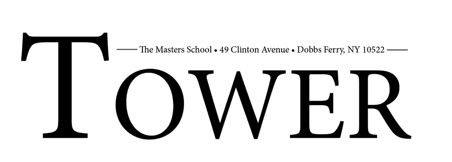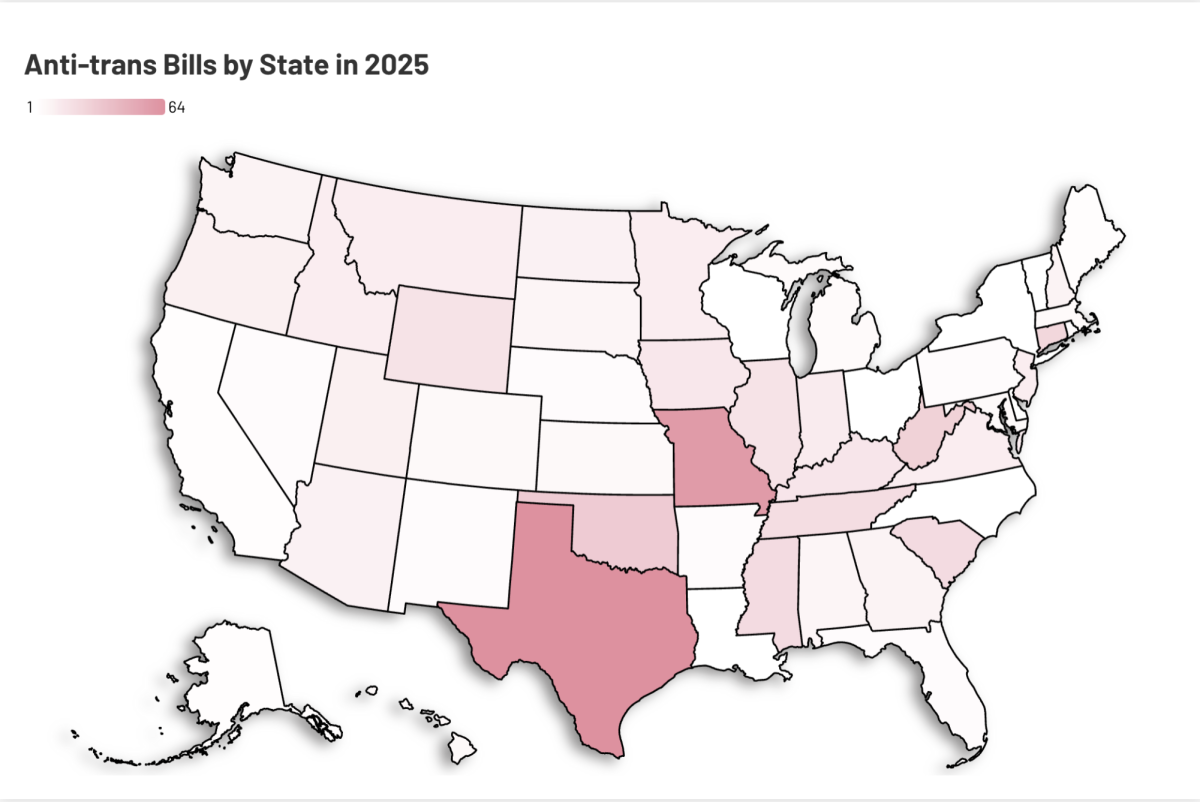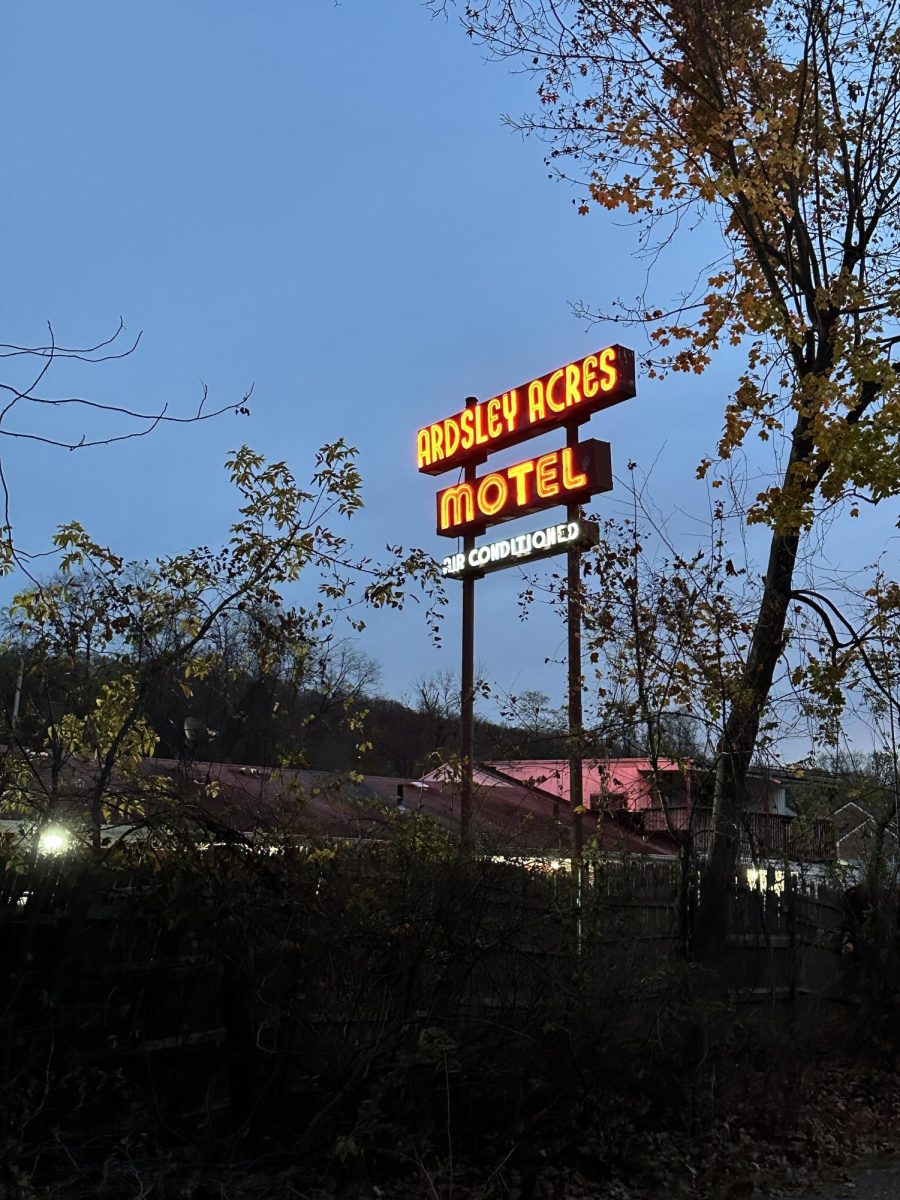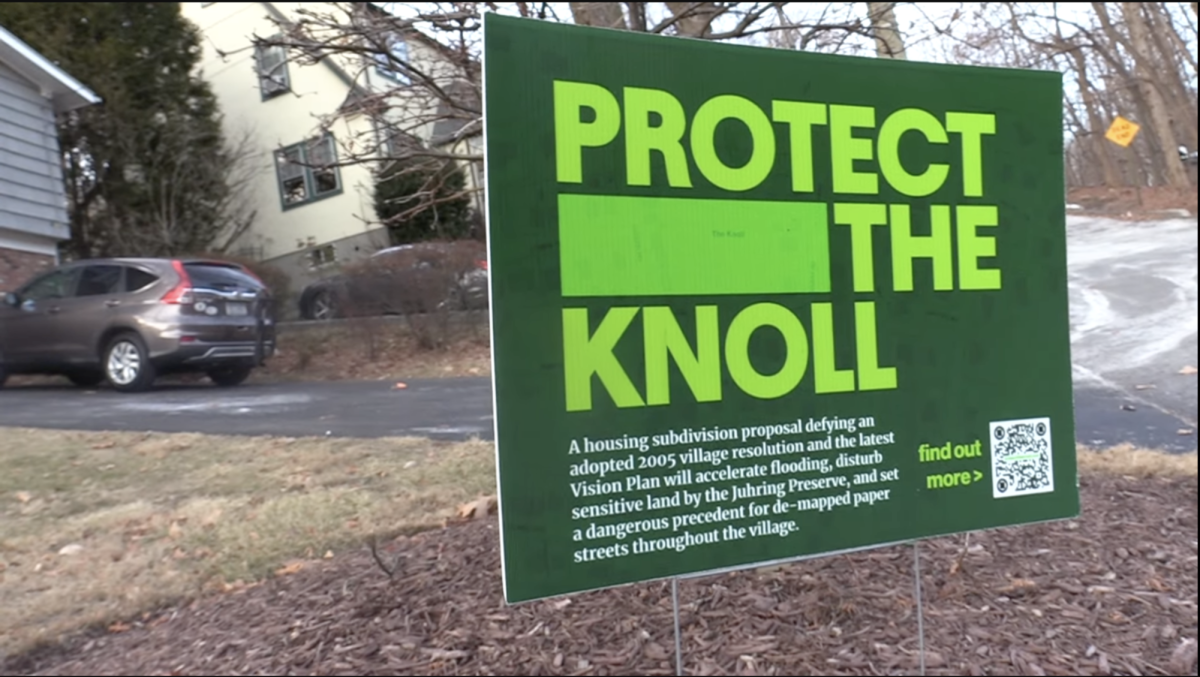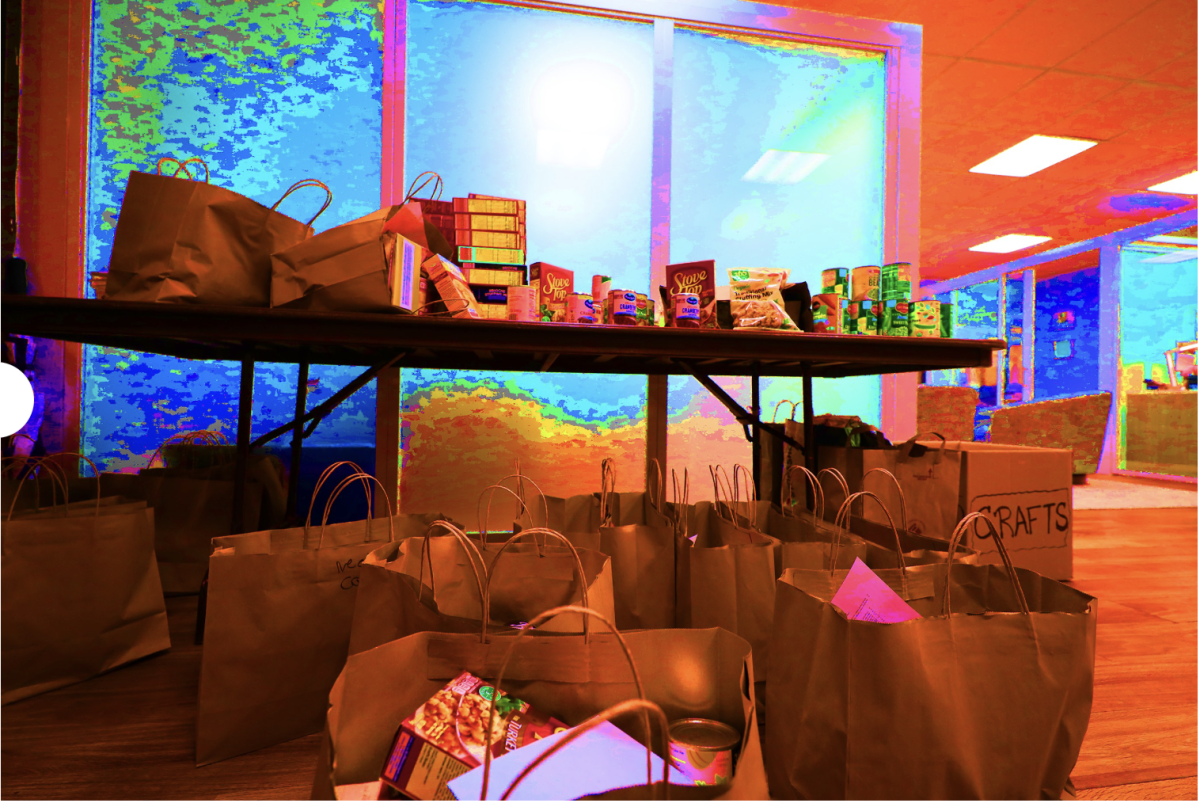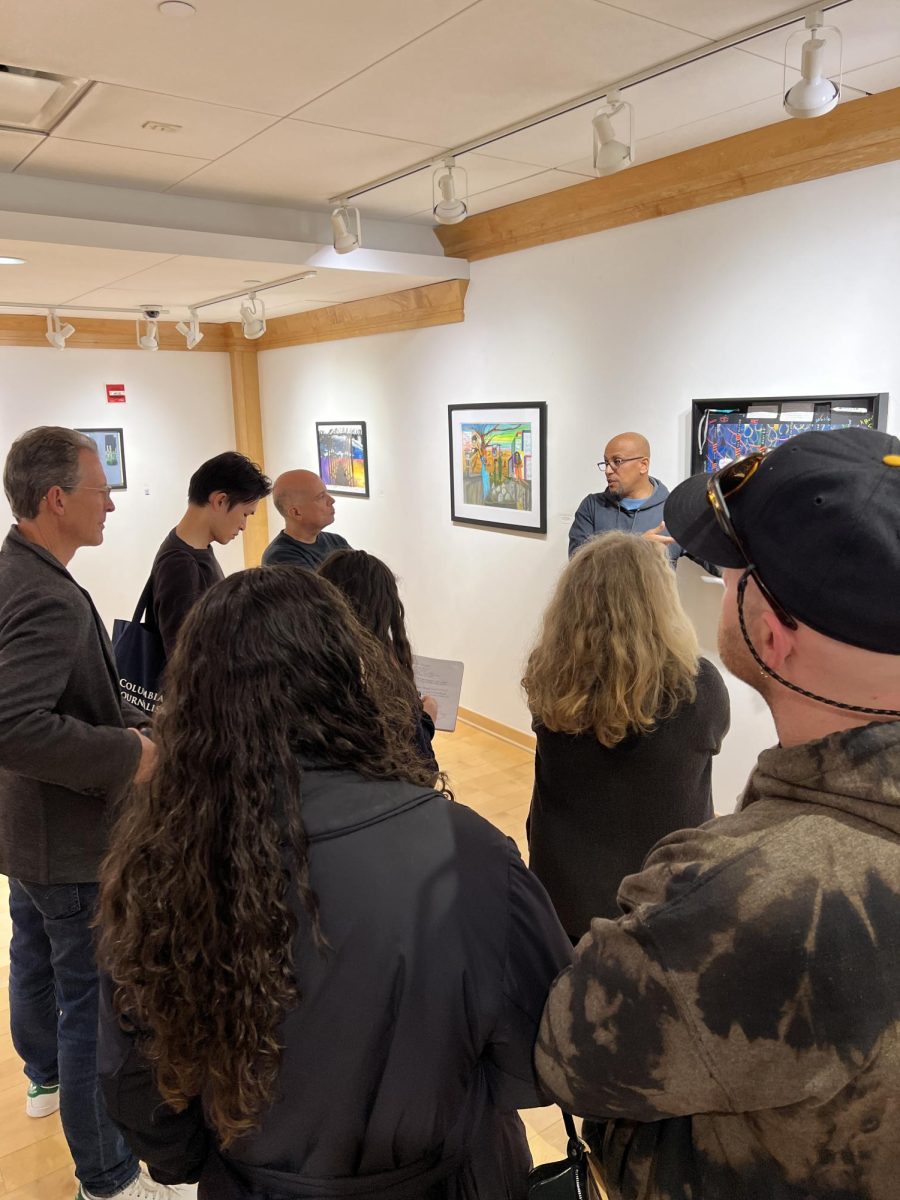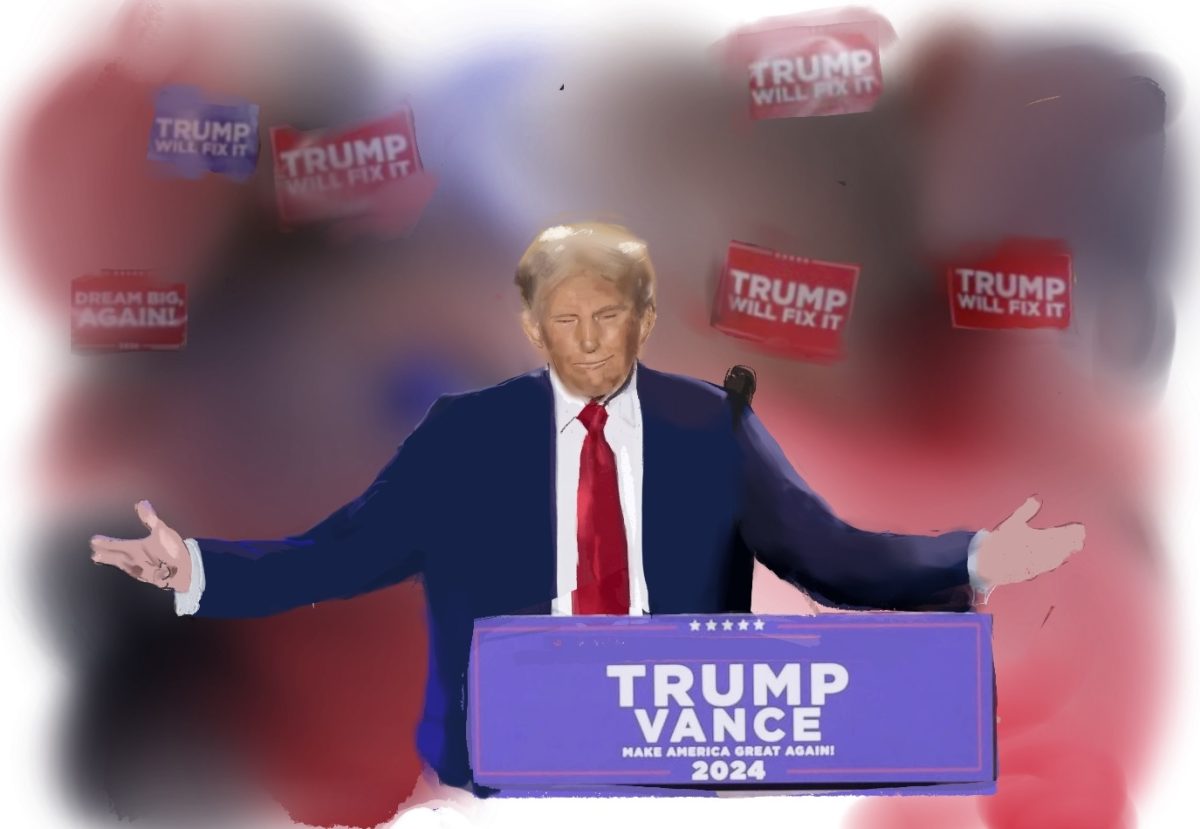The hearts of Americans are racing as the seemingly tight U.S. presidential race comes to a close. With election day here, both sides of the political aisle are in a collective mindset, both inclining their heads and straining their eyes to see over into the ravine that lies ahead. International students at Masters bring their own anxieties to the election. Though most are not from the United States, this election could impact their ability to attend college in the States. Many find themselves surprised by the openness of American political debate, the harshness of rhetoric and partisan divides that make political discussions difficult.
Jiayi “Mikey” Lyu is a Masters student from Beijing, one of the major political centers in China. Prior to coming to the United States, Lyu said she had a very “liberal version of America” in mind since “everyone is able to participate in the voting” process. She said that upon arriving in the States, this version of America largely held true.
Lyu spends time both in and out of school engaging in American politics. She took AP U.S. History in her junior year, is now taking Political Science as a senior, and follows both presidential candidates on their various social media platforms. She sees this engagement, across social media, in classes, and in open discussions day to day, as a means for Americans to exercise their power in democracy.
Still, sometimes, she finds the criticism of political candidates, no matter how deserving it may be, a bit disrespectful. She noted that American comedy that focuses on the parody of political candidates is exactly what would land someone in prison in China. She feels that Americans should exercise their free speech to empower themselves instead of bringing down another group. In her view, the political candidates are the ones “who are making contributions to this country” and even if they hold questionable beliefs, they should receive respect.
Not often thought about in an American’s daily life, is the prominent role of political criticism in pop culture. While this political criticism may not be noteworthy to an American, upon arriving, it strikes a chord in many international students.
Arriving in the United States from Turkey four years ago, Mert Kaplan, now a senior, saw himself exposed to a new form of political interaction in political comedy and pop culture. From Saturday Night Live to Trevor Noah, and even just joking around with roommates, Kaplan was introduced to a new form of entertainment, dark humor that pokes fun at politics to relieve the common tensions around such a touchy topic matter.
Kaplan grew up around politics, with his father working at a major newspaper in Istanbul, the Hürriyet, and his grandfather working as a journalist. Still, Kaplan was not used to the openness people in the U.S. have when it comes to talking freely about politics.
In Turkish middle school, Kaplan was “sort of banned from talking about politics.” He praised Americans’ freedom to express differing viewpoints, especially given America’s diversity.
He explained that, with so many different backgrounds and needs, it is important for voices to be heard. However, Kaplan pointed out that the differing needs of the citizens make for “clashes between people” and “political dissonance.”
Moving to the U.S. helped relieve Kaplan’s fears and “opened [him] up to the exploration of new viewpoints,” he said. However, the freedom of speech that he’s come to value is now being threatened as political polarization increases. He observed that while they are utilizing their freedom of speech, Americans often forget to listen, which makes the effort futile.
This idea of a flawed utilization of free speech is pointed out by quite a few international students. Junior Anna Caponnetto, a boarding student from Spain who has been in the U.S. for two years, said that in Spain, “the conversation around politics was really kind of taboo.” Coming to the U.S., she saw it as “a very democratic country” where each person “has different perspectives and political ideas.” However, Caponnetto was surprised to find that while people are open to discussions, they are very steadfast in their opinions.
At Masters, she finds that people are “not really open to changing their own opinions”, though “there are a lot of different political ideas, people are stuck to their own.”
Yehor Shudrenko, an eleventh grader from Ukraine who moved to the States four years ago due to the war in Ukraine, also pointed out that people in the U.S. tend to vote based on party affiliation instead of considering if a middle ground could be found. He explained that in Ukraine, the political parties are more evenly spread out in the number of supporters. He sees this variety as a way for people to express their views without being limited to two parties. This, to him, is a way to mitigate political polarization between parties.
With groups refusing to listen, Kaplan said they often misinterpret each other, furthering polarization. Both sides provoke fear of the other, similar to the fear Kaplan felt when he too was subjected to skewed ideas about free speech and opinions. Though Americans are able to say and think what they please, their use of free speech is “not being used effectively” since “people refuse to listen”. This, Kaplan believes, is the cause of much of the political unrest seen today.
Kaplan came to America and found himself “not scared anymore.” He wonders if the fear American political sides hold toward the opposing group is “a sign that freedom of speech and beliefs are being misused.”
For many students, having a choice of a political leader is a luxury.
Elizaveta “Liza” Melnikova is from Russia, and notes that unlike in America, Russian schools do not talk about politics often, since “everyone knows who the candidate is going to be.”
In contrast, she notes that her history class at The Masters School committed an entire unit to the election in the U.S. In Russia, she, along with a majority of the population, don’t need to concern themselves with politics because they do not have much control over it, she said.
In places like Russia, where the political scene is pretty much controlled by one group or person, often, the government controls the media.
Melnikova said that in Russia, “You can’t receive much of the stuff about the U.S. unless you use a VPN, because half of the stuff is blocked.” She continued on to point out that any media citizens can access without a VPN aligns with the Russian ruling party viewpoint. Coming from “a country that doesn’t listen to anyone’s opinions,” Melnikov said she values the freedom of speech and opinion that Americans enjoy.
Boarding students at Masters, hailing from other countries, have the unique perspective of hearing from two or more sources of news – from United States news outlets and from outlets in their own country.
Junior Kseniia Lukianenko, from Ukraine, has experienced many instances of contradicting information coming from her country and from the United States.
With Ukraine news outlets focusing on the U.S. election to see what the effect will be on their ongoing war with Russia, often the news her family in Ukraine hears is filled with fear. Lukianenko said, “Ukrainian sources show different information than American ones like the difference in polls.” She reports her mother worrying about a “red win” because of the negative effect the win would have on the Ukraine war effort. Lukianenko, living at Masters in New York, which arguably has a population that leans towards the Democratic party, sees less reason for worry. The news she has heard makes her more confident in a “blue win”.
Collectively, all of the interviewed students had concerns about how the election results would impact them as foreign students.
Each student expressed nervousness about their home country and America’s effect on it.
The election results will impact all foreigners, from access to green cards to the renewal of visas, depending on the winner’s political stance.College decisions were another prominent concern. Depending on the winner, whether or not they stay in the U.S. for college will be determined.
With angst churning for the results to come, foreign students here at Masters, like Lyu, wish to remind us all that “we are scared too.”


